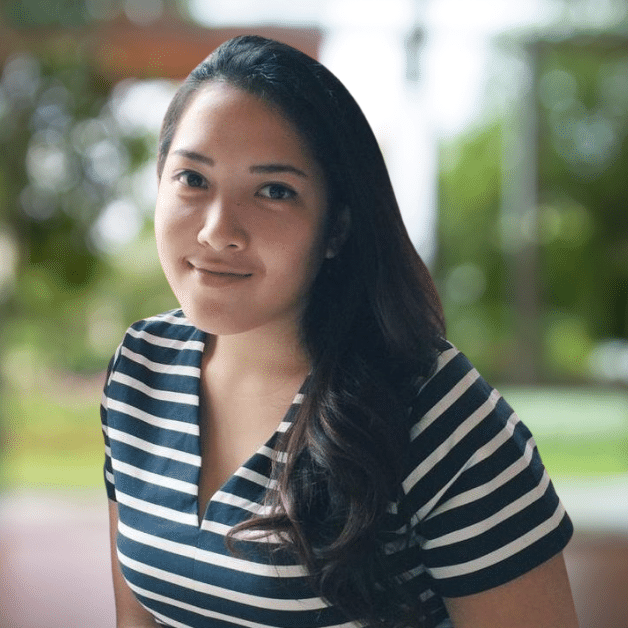At The Council on Recovery, we know we can’t solve addiction alone. That’s why training medical and behavioral health professionals is an essential part of our work – and has been since as early as 1955! For ten years, our Mary Bell Behavioral Health Clinical Fellowship has been a pillar in our efforts to train the next generation of behavioral health professionals. We sat down with Nina Tahija, LMSW, our current Mary Bell Behavioral Health Clinical Fellow at the Center for Recovering Families to discuss her experience:
Tell me about yourself and what you do at The Council.
I graduated from University of Houston Graduate College of Social Work in 2021. While I was there, I completed a clinical internship at Baylor Psychiatry Clinic, a trauma fellowship, and a specialization in health and behavioral health. I’m also a trauma-sensitive yoga facilitator. I have a strong passion for providing trauma-informed care for my clients.
I currently work as a Mary Bell Behavioral Health Clinical Fellow. In this role, I co-facilitate psychotherapy groups, lead a Dialectical Behavior therapy-informed skills group, conduct assessments and provide individual therapy.

Why did you want to become a fellow with us?
I was looking for a supportive and collaborative environment to continue honing my clinical skills. I had heard former interns and fellows speak highly of the tremendous growth they got as part of the clinical team, so I thought it would be a natural next step for me. The fellowship program at The Council offered the opportunity to work with individuals struggling with substance abuse and/or other mental health struggles, while receiving intensive training through weekly didactics, supervision, and treatment team meetings.
What are some major takeaways from your experience as a fellow with the Center for Recovering Families?
One of the biggest takeaways for me is the power of connection in one’s recovery. As a group facilitator, I have witnessed the profound impact this space provides for clients to share openly and vulnerably, ask for what they need, and support each other. I also learned the importance to meet clients where they are, understanding that each person has unique lived experiences and are in different parts of their healing journey.
What is some advice you have for people wanting to go into social work and behavioral health?
Know your why for going into this field. Be open to continually reflect on your own experiences, positionality, and biases so you are mindful of the lens that you are working with. Also know that you don’t have to go through this process alone. One of the highlights of my time in graduate school is finding a supportive community through my peers and mentors.
